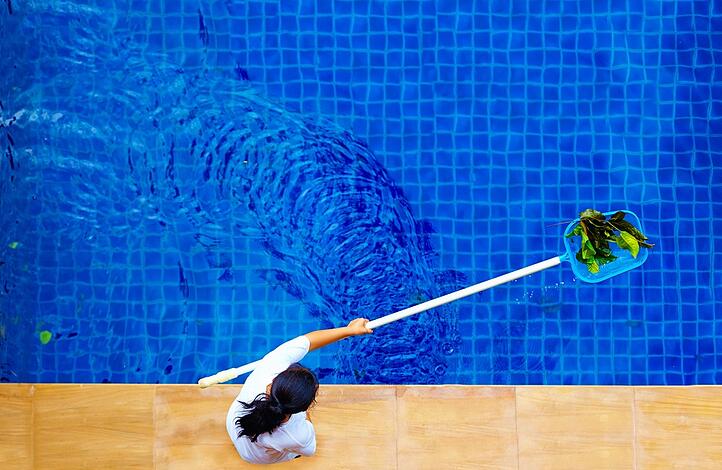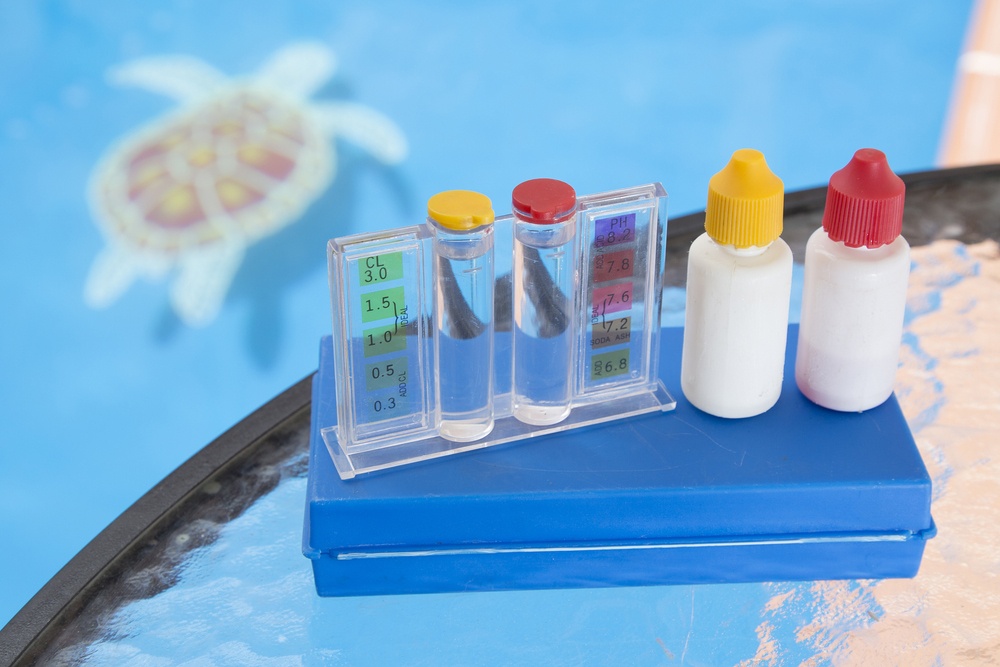Sand Pool Filters
While long-lasting and easy to use, sand pool filters also have a higher threshold for filtering microorganisms (the smallest particle they filter is around 20 microns versus 10 for cartridges and as tiny as 3 for DE). However, they are the least expensive type of filter and do an adequate job for most pools, especially if you use suitable pool cleaning chemicals.
Cartridge Pool Filters
With a larger filtration area and ability to remove smaller particles than a sand filter, cartridge pool filters are often an ideal choice for an above ground pool because they don’t put as much pressure on the pool circulation pump to move the water. While the cartridges do not require backwashing (deliberately pushing water the opposite way through the filter to rid it of buildup), they are best for smaller pools and can be more expensive upfront to purchase than a sand filter.
Diatomaceous Earth Filter
A DE filter relies on tiny fossilized Diatoms to remove micro-particles as minuscule as 3-5 microns from your pool. Under a microscope, DE looks like miniature sponges that act as traps for all the gunk you want out of your pool. While a DE filter does the most exhaustive cleaning job, it also requires the most maintenance and is the most expensive.
Pool Circulation Pump
To circulate all the water evenly through your pool’s filter, you’ll need a fiberglass pool pump. If you think of the filters as your pool’s kidneys, the pool pump is the heart, propelling water through the filters and returning it, freshly cleansed, back into your pool. Note that a fiberglass pool water circulation pump does not have to run all the time. Its schedule depends on the external temperature as well as use: the hotter the temperature and the more use your pool gets, the longer the pump will need to run on a daily basis.


